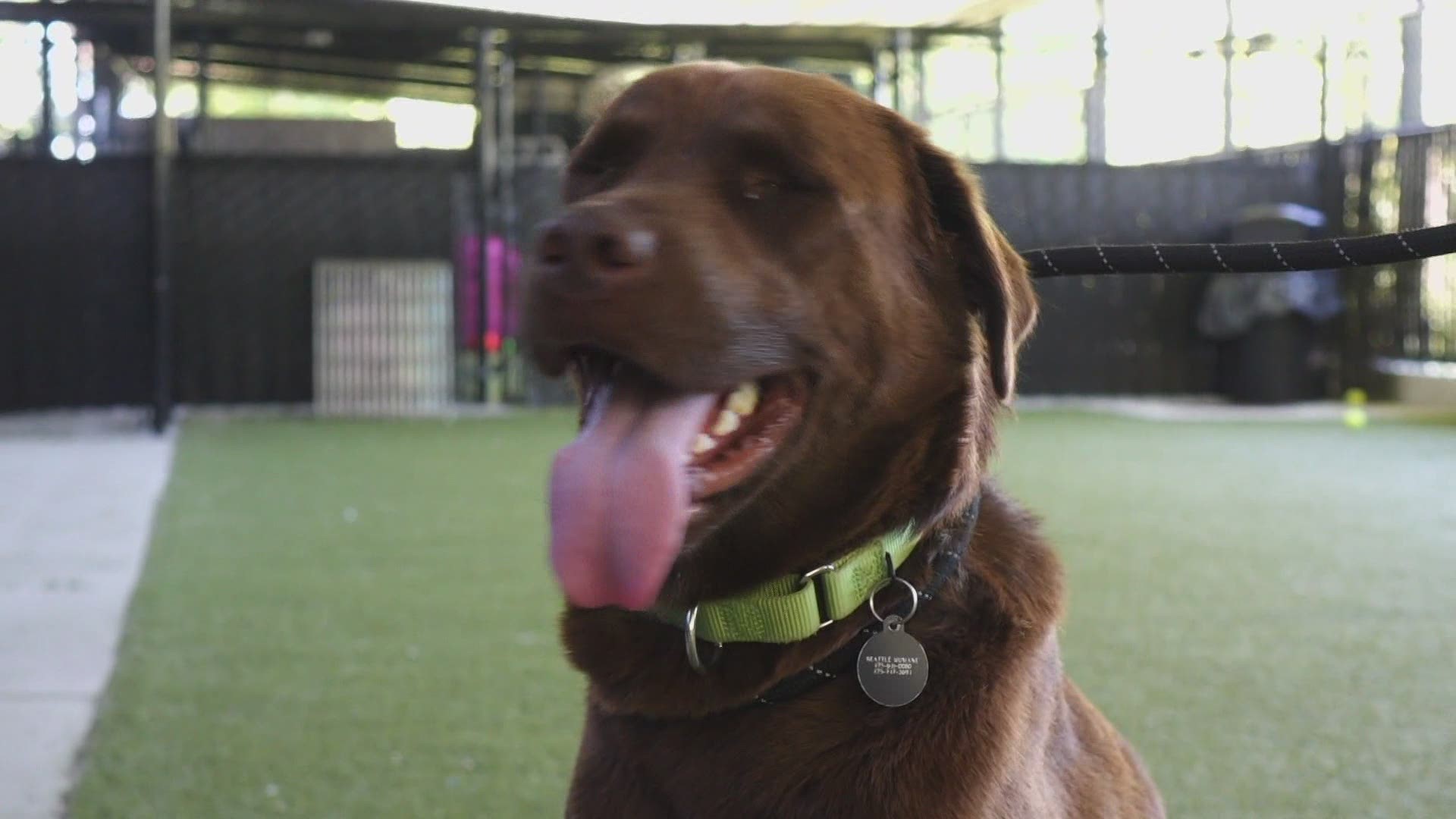With temperatures expected to reach the 90s in some parts of the Puget Sound region, it is important to make sure your furry friends are kept cool.
Just like humans, dogs and cats can overheat and even sunburn. But unlike us, dogs and cats do not sweat. They cool themselves by rapid breathing. When it's hot for you, it's even hotter for them.
Protect your pets from the heat by making sure they always have plenty of fresh water.
Car interiors heat quickly, even with the windows open. If your pets can't go inside every stop with you, leave them home. Too much heat can be extremely dangerous and sometimes fatal.
Heatstroke is an emergency. Signs include heavy panting, agitation, glazed eyes, rapid pulse, staggering, vomiting and a deep red or purple tongue.
If an animal is overheated, place it in a cool place and apply cool (not cold) water all over its body. Apply ice packs or cold towels only to the head, neck and chest. Let it drink small amounts of cool water or lick ice cubes and go immediately to a veterinarian. DO NOT wait to see if your pet improves - it's always better to be safe than sorry.
If your pets spend time in the yard, make sure they have access to shade trees or a covered patio. Remember, newly clipped animals and animals with white fur are more likely to get sunburned. Dogs often enjoy having cool water on their feet to help them cool down. Some dogs enjoy walking through or even lying in a child's wading pool.
Here are some tips for protecting pets during hot weather:
• Never leave your animal chained or penned up directly in sunlight. Provide a shady area where the animal can retreat to such as a dog house, porch or shady tree, kiddie pool, and always provide cool water. Ice cubes and cold canned food are also great snacks for helping a pet cool down.
• If you must leave an animal indoors, open the windows, keep a fan running, provide plenty of water, and if possible, leave them in a cool location.
• Shaving your pet is not always the best thing to do, instead keep them groomed and brush them frequently to help shed excess fur.
• Avoid walking your animals on hot pavement. The sun heats up the roads and sidewalks during the day and the heat can damage paw pads. Use harnesses instead of collars to avoid restricting an animal's breathing
• Never leave dogs or cats unattended in a closed, locked car. Temperatures can exceed 130 degrees in a matter of minutes. Animals do not perspire like humans; they cool themselves through their lungs by panting. Hot air can lead to brain damage or death. Also, be aware that vinyl seats in vehicles get hot under animals' feet and prevents them from perspiring through their paws. Remember, with the movement of the sun, a vehicle originally parked in the shade may soon be in direct sunlight.
• Avoid overexerting your animal in hot weather. Exercise is fine when taken in moderation, but obesity, old age, underlying disease and previous bouts of heat stroke can predispose an animal to the condition. Save exercise for evenings and mornings.
• Feathered friends: Take caution and place the bird's cage away from direct sunlight during the intense heat of the afternoon. Provide water and fruits and vegetables with high moisture content.
• Pet owners can be held criminally liable for committing cruelty to animals if a pet dies, or is found suffering from heat prostration. If you see an animal that may be in need of assistance or if you have questions, contact the Seattle Animal Shelter at (206) 386-PETS.

